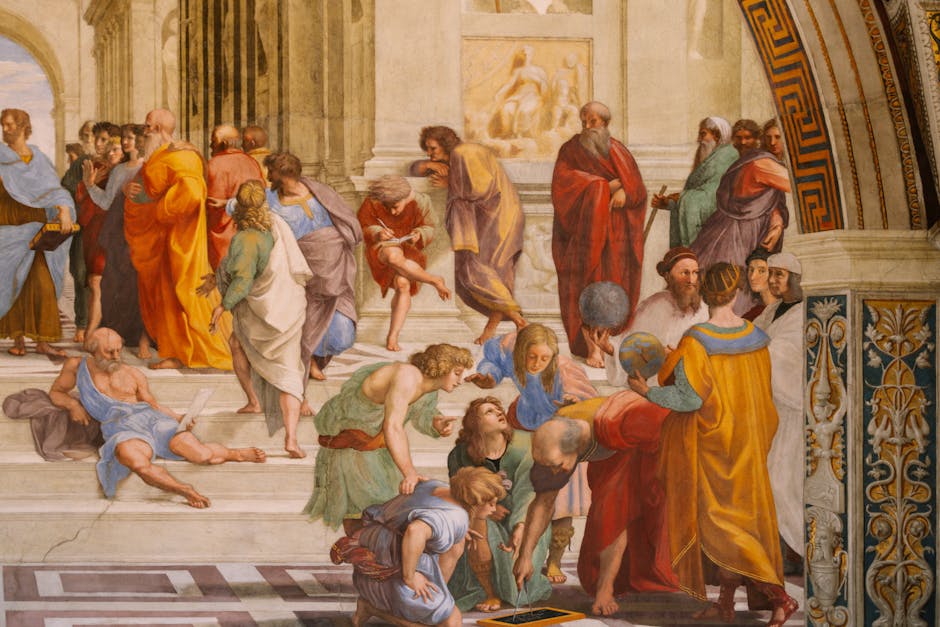Classical literature, a bedrock of Western thought and artistic expression, encompasses a rich tapestry of narratives, philosophies, and dramatic works. These creations, born from ancient Greece and Rome, continue to resonate with contemporary audiences, offering insights into human nature, society, and the very essence of the arts. Exploring the significant figures who contributed to this legacy reveals the enduring power of storytelling and the profound impact these individuals had on shaping the artistic landscape.
Homer, arguably the most celebrated figure of ancient Greek literature, stands as a towering presence. His epic poems, the *Iliad* and the *Odyssey*, are not merely historical accounts; they are profound explorations of heroism, fate, and the complexities of human experience. Homer’s vivid descriptions, meticulously crafted narratives, and profound understanding of human motivations established a literary benchmark that subsequent writers sought to emulate. The profound influence of his work extends beyond poetry. His detailed portrayals of gods and heroes, their conflicts and relationships, laid the groundwork for mythological narratives that shaped artistic expression for centuries to come, influencing everything from paintings and sculptures to plays and philosophical discourse.
Another prominent figure in the Greek literary tradition is Hesiod. While lesser known compared to Homer, Hesiod’s contributions to the cultural fabric of ancient Greece were equally substantial. His *Works and Days* and *Theogony* offer invaluable insights into the agricultural practices, societal structures, and the burgeoning myths of early Greek civilization. Hesiod’s poems aren’t just chronicles of events; they are practical guides, weaving together moral lessons and practical advice. His works illustrate the interconnectedness of the human world with the divine, a theme that consistently resurfaces in Greek literary and artistic creations.
Sophocles, a prominent tragedian of ancient Athens, contributed significantly to the development of the dramatic form. His plays, including *Oedipus Rex*, *Antigone*, and *Electra*, grapple with profound themes of fate, free will, and the consequences of human actions. Sophocles’ masterful use of dialogue, character development, and dramatic tension elevated the dramatic arts to new heights. His explorations of complex ethical dilemmas resonate even today, demonstrating the enduring relevance of his profound insights into the human condition. The artistic impact of Sophocles can be observed in countless works of art across centuries, as artists draw inspiration from the potent themes he presented on stage.
Alongside Sophocles, Euripides emerged as a powerful voice in Greek tragedy. His plays often challenged conventional views, confronting societal norms and exploring the darker aspects of human nature. Euripides’ characters, often driven by passion and flawed by their motivations, represent a more nuanced portrayal compared to the idealized figures of earlier tragic poets. His works, marked by their psychological depth and their examination of societal anxieties, exerted a significant influence on the development of Western drama, continuing to inspire contemporary playwrights.
Moving to the Roman sphere, Virgil stands as a towering figure. His epic poem, the *Aeneid*, chronicles the journey of Aeneas and his descendants, tracing their establishment of Rome. Beyond its historical implications, the *Aeneid* showcases Virgil’s mastery of language and poetic technique. It is a narrative masterpiece, embodying Roman values and aspirations, a testament to the Roman spirit of resilience and the enduring appeal of heroic narratives. The *Aeneid*’s lasting influence on Western literature is evident in its pervasive themes, which continue to reappear in subsequent works of epic poetry.
Another Roman author of significant influence is Ovid. Celebrated for his poetic talent and wide-ranging themes, Ovid’s *Metamorphoses* offers a vast compendium of Greek myths, retelling and reinterpreting them with poetic brilliance. Ovid’s artistry extends to his love poems and elegies. He presents an exquisite exploration of human emotion and experience, providing a nuanced understanding of love, loss, and the human condition. Ovid’s work profoundly impacted subsequent artistic endeavors, influencing writers, artists, and thinkers across the ages.
These figures, among many others, represent crucial milestones in the evolution of classical literature. Their works, meticulously crafted and imbued with profound insights, continue to shape contemporary artistic endeavors and literary traditions. Their stories, characters, and themes offer a window into ancient societies, unveiling universal aspects of human experience that transcend time and place. By studying these influential figures, we gain a deeper appreciation for the enduring legacy of classical literature and its profound impact on the arts and culture we experience today.






